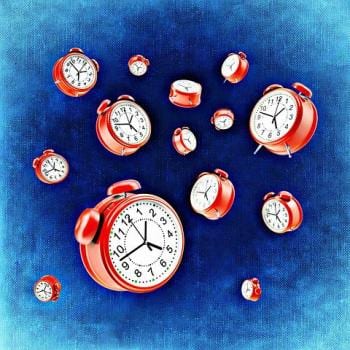Editors' Note: This article is part of a Public Square conversation on Capitalism. Read other perspectives here.
Three hundred years ago, something sprung from the newly-enclosed countryside of a small island nation, and no thing upon the earth has escaped its brutal touch.
Human relationships suddenly changed—relations to the land under our feet, to the forests at the edge of villages and cities, to their families, their neighbors, their communities, their ancestors, and to their gods. Millennia-old religions, ancient traditions and wisdoms, even our very understanding of ourselves changed in the face of a new understanding of the world, an odd and unprecedented alteration in the most basic of human activities.
In the centuries since its untimely birth, it spread its tendrils out from the confines of an imperialist nation to climb and clasp and choke the peoples of other lands. Where it found resistance, it rooted beneath traditions of charity and co-operation, undermining prohibitions against usury and economic oppression until communities and even nations fell, the foundations below them poisoned by demands of "profit" and "progress."
Even the strongest religions of Europe and the near-East fell quickly to this new pestilence, just as the indigenous peoples of Africa and the Southern Americas succumbed to factory-made weapons, economic force, and human-carried diseases. To be a Christian and reject capitalism is not easy, nor is it simple to be a Muslim or a Jew and reject the advances of the market. And even the great Eastern religions found themselves transformed, weakened, and emptied.
Religions that taught against exploitation of others fell under its sway, and the peoples who embraced these beliefs found little protection in them as their ways of life crumbled, as their access to the land and paths of their ancestors became fenced-off in the name of "private property."
Even the great scientists, regarding not the gods but the ways of nature, became tainted by this new relationality, unable to see the falsehood in an unexamined postulate we now all share. Biologists and botanists, noting transitions in species over time, recognized truly the process of evolution but unquestioningly theorized that all of Nature operates under the same logics that fuel capitalism: competition and greed. The minds of great scientists even to this day fail under the weight of the near-invisible yet utterly ubiquitous grasp of capitalism.
A few brilliant attempts have been made to stop it. Protests, resistances, and even revolutions have tried to undo what was wrought from the foul magics in 18th-century England. Blood has stained the streets of great cities, deserts, forests, and plains, but still we labor and toil under the crushing imperatives of productivity and consumption. The strongest of these attempts is still with us in some places, but it accepts the mechanization of humanity and the rape of the earth.
Capitalism hasn't failed. And if the last three hundred years has taught us anything, it is that there is no hope against it.
But here is a strange thing that I do not understand. I do not know why the streets are sometimes thronged with people, sometimes millions of them. Once every few years something happens that brings Muslims and Jews, Christians, Atheists, Buddhists, Hindus, and Pagans together under the same sun, upon the same earth. Some idea, some memory or nostalgia; perhaps even a dream.
Capitalism has not failed, likely cannot fail, and yet ... and yet, sometimes the gathered peoples try anyway, as if there might be some belief not yet been obliterated under the banker's heavy boot, the landlord's divine right, and the business owner's demand for more. Maybe they foolishly cling to the teachings of our gods and prophets, or to the contours of the soul, or the conscience of their rational minds. Perhaps they've decided to try again, daring against greed and selfishness, credit cards and bank balances, distrust and disbelief?
Perhaps they've seen something, some crack in the wall that encircles us, some gap in the pavement that constricts us. Perhaps like chamomile, they hope to find life within the subtle openings, the imperfections and, thus rooted, make room for more life. Perhaps they suspect they might be able to outgrow capitalism, as a tree upturns heavy stone.
Can capitalism fail? I don't know. But others seem to think it might, and I've seen what nature can do to what we think will stand forever, what gathered peoples can do against something they no longer want, what belief can do in the face of the apparently impossible.
4/9/2014 4:00:00 AM




